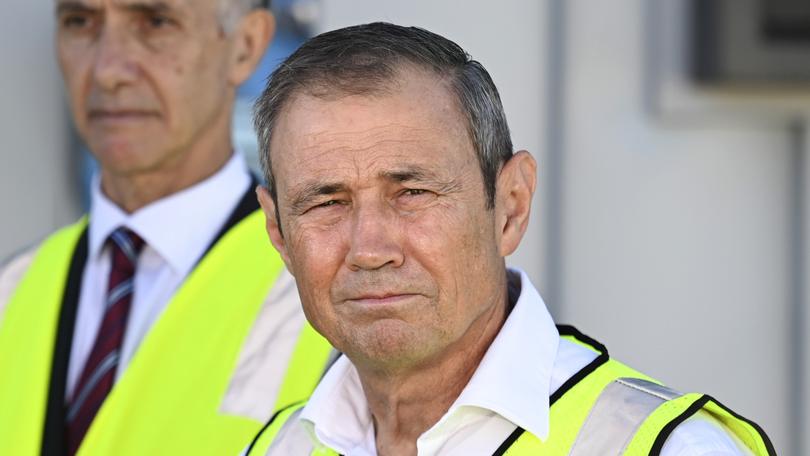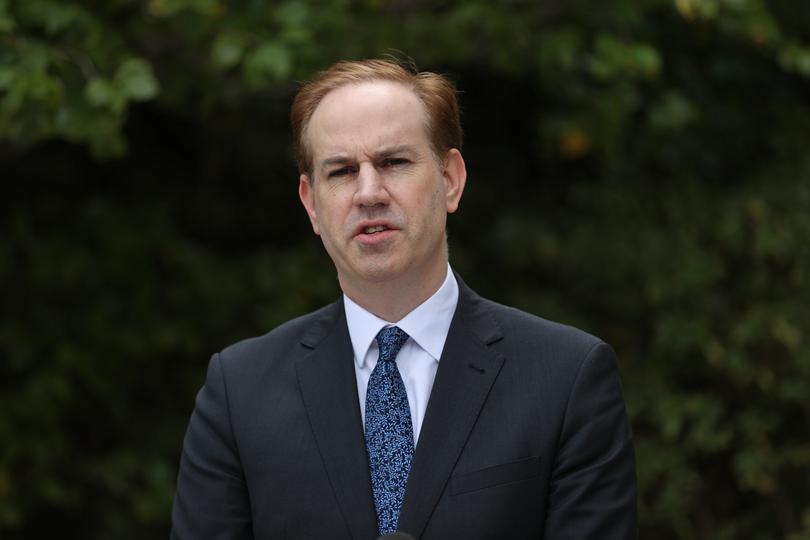Premier Roger Cook urges transparency on Labor’s ‘secret’ Nature Positive environmental laws as concern grows
WA Premier Roger Cook has urged transparency as concern grows about the unusual tactics being used to consult stakeholders over the controversial ‘Nature Positive’ environmental law reforms.

WA Premier Roger Cook has revealed he is aware of “significant dissatisfaction” among the State’s resources sector with the Albanese Government’s secretive approach to consultation over wide-ranging new environmental laws.
Proposed “nature positive” reforms have caused alarm among industry because of their potential to add red tape, open new avenues for legal challenges and exacerbate delays to project approvals.
At the heart of those fears is an unusual consultation process that has seen stakeholders flown to Canberra for closed-door briefing sessions where they are barred from bringing phones or laptops and limited to handwritten notes.
Sign up to The Nightly's newsletters.
Get the first look at the digital newspaper, curated daily stories and breaking headlines delivered to your inbox.
By continuing you agree to our Terms and Privacy Policy.The re-write of the Environment Protection and Biodiversity Conservation Act is being driven by Federal Environment Minister Tanya Plibersek, who has claimed it will both speed up the approval process and result in better protections for Australia’s natural assets.
But – as revealed by The Nightly – there are mounting concerns the end result will be an even more cumbersome approvals process that blows out timelines and increases litigation risk.
Mr Cook on Thursday confirmed he was aware of widespread misgivings.
“The consultation process is ongoing, but I understand that there’s significant dissatisfaction with the consultation process by industry participants,” he said.
“I’ve always urged the Commonwealth Government to negotiate and consult widely with industry, particularly in relation to these laws which will have significant impact on the Western Australian mining and resources sectors.”
Pressed on whether he shared the concerns of major miners like BHP, Mr Cook reiterated his call for more transparent conversations with stakeholders likely to be impacted by the reforms.
“In every discussion I’ve had with the Commonwealth Government, I’ve urged them to consult widely with WA industry,” he said.
Speaking the same day, Association of Mining and Exploration Companies chief executive Warren Pearce said his members had been provided very little detail which was fuelling their anxiety.
“The closed-door sessions for consultation that doesn’t enable us to bring that information back to our members is unacceptable,” Mr Pearce said.
“We really need the Federal government to slow this process down.
“These are big reforms. They need to be done sensibly and in good consultation with wider industry but also the wider community.”
Mr Pearce also called on State governments to become more vocal and “push the Commonwealth to do that consultation properly.”
“Any approach would be better than this one,” he said.
“What we want to see is the detail. What we’re getting is the broad concepts, some general standards and no detail around how it’s going to be developed, or any information about the feedback they’ve received and how they’re going to address it.”

Mr Pearce said his understanding was that the Albanese Government intended to introduce the new tranche of laws to Parliament after the winter recess.
The world’s biggest mining company, BHP, sounded alarm bells over Ms Plibersek’s nature positive reforms in a report on Australia’s competitiveness released in November.
“The proposed transition from the current process-based EPBC Act to the new standards-based Nature Positive Act, if not managed appropriately, has the potential to make permitting processes even more complex, increasing regulatory burden, approval timelines and litigation risk as well as increasing the cost associated with offsetting impact,” the report said.
“Because of this we strongly encourage the Government to ensure the reform process is not rushed and that all stakeholders are continued to be offered the opportunity for meaningful consultation to enable workable outcomes.”
Federal Labor committed to establishing a national Environment Protection Agency one day before the 2022 election.
The proposed watchdog – which replicates a function already in place in WA – is one of the key planks of what evolved into the broader reforms announced by Ms Plibersek in December 2022.
One model being considered in the new legislation – which is still being worked up – would transfer decision-making on projects of “national significance” from the environment minister of the day to the EPA’s government-appointed board.
That represents a big departure from the process in place in WA for more than 50 years where the EPA makes recommendations but the State minister has the final say.
